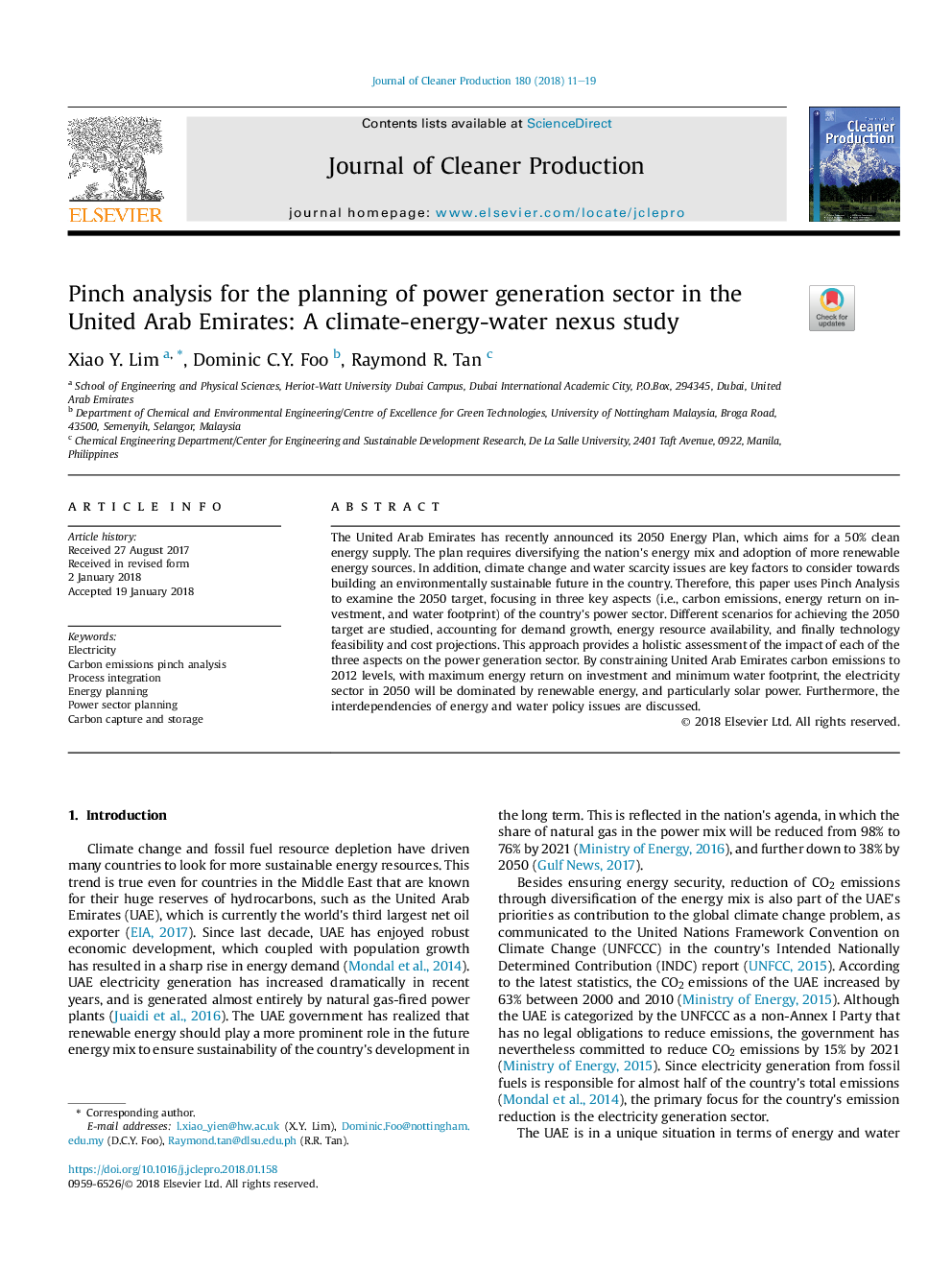ترجمه فارسی عنوان مقاله
تجزیه و تحلیل خرج کردن برای برنامه ریزی بخش تولید برق در امارات متحده عربی: بررسی رابطه آب و هوا-انرژی-آب ناسا
عنوان انگلیسی
Pinch analysis for the planning of power generation sector in the United Arab Emirates: A climate-energy-water nexus study
| کد مقاله | سال انتشار | تعداد صفحات مقاله انگلیسی |
|---|---|---|
| 112101 | 2018 | 9 صفحه PDF |
منبع

Publisher : Elsevier - Science Direct (الزویر - ساینس دایرکت)
Journal : Journal of Cleaner Production, Volume 180, 10 April 2018, Pages 11-19
ترجمه کلمات کلیدی
برق، تجزیه کربن انتشار پینچ، ادغام فرآیند، برنامه ریزی انرژی، برنامه ریزی بخش برق کربن ضبط و ذخیره سازی،
کلمات کلیدی انگلیسی
Electricity; Carbon emissions pinch analysis; Process integration; Energy planning; Power sector planning; Carbon capture and storage;

